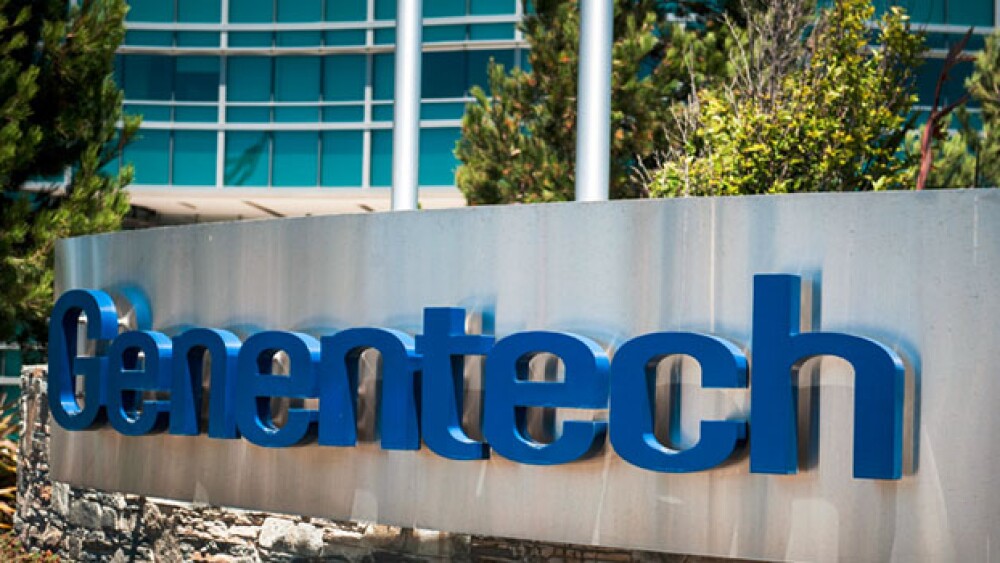One of the most important points about Hemlibra’s approval, beyond its significant efficacy is the positive impact it will have one the quality of life for these hemophilia patients.
ATLANTA –To say that Genentech, Inc.’s newly approved hemophilia drug Hemlibra is generating excitement within the community of patients and caregivers might be an understatement.
This weekend the conference room where Genentech unveiled its latest data on the drug at the Georgia World Congress Center in Atlanta for the American Society of Hematology meeting was filled to capacity. Additionally, an overflow room was also packed as Genentech revealed long-term data from the earlier Haven 1 and Haven 2 trials that shows the drug maintains its efficacy in patients over an extended period of time.
Dr. Gallia Levy, medical director and global development lead for Hemlibra at Genentech, shared the new data and expressed what the availability of a treatment means for hemophilia patients with factor VIII inhibitors. The longer-term data shows that more patients continued to experience zero bleeds with Hemlibra prophylaxis compared to their prior prophylaxis or on-demand BPA treatment. Updated data from Haven 2 showed 94.7 percent of children with hemophilia A with inhibitors who received Hemlibra prophylaxis had zero treated bleeds. Updated data from the Haven 1 study showed an 88 percent reduction in treated bleeds in adults and adolescents.
“The data held up in the follow-up, which is wonderful to see,” Levy said.
One of the most important points about Hemlibra’s approval, beyond its significant efficacy, Levy said, is the positive impact it will have one the quality of life for these hemophilia patients. Before Hemlibra, these patients had to receive intravenous infusions every few days. Now that has changed with Hemlibra.
“To have options like this… this is really going to be wonderful for them,” Levy said in a telephone interview with BioSpace from ASH.
Levy said Hemlibra could truly become life changing for hemophilia patients with factor VIII inhibitors. Those patients have been challenging to treat in the past and that meant their needs were not being addressed as well as they should have been, Levy said. The prior treatment options meant children were missing school more often due to treatment schedules, adolescents couldn’t play sports and many adults could not maintain steady employment, she said.
“What we’ve heard from patients is stories of statistically significant improvements in quality of life measurements. It just doesn’t capture the magnitude of change in these patients’ lives,” Levy said. “For these particular patients, they’ve been waiting a long time for something new.”
For three years, Levy has worked on the development of Hemlibra. With its approval and the continued efficacy results, she said it’s one of the things she will be most proud of in her career.
Hemlibra was approved by the U.S. Food and Drug Administration in November based off data from Genentech’s Haven 1 and Haven 2 trials. During clinical trials, Hemlibra was shown to substantially reduce bleeds in adults and children who have hemophilia A with the inhibitors. In the Phase III Haven 1 study, hemophilia A patients 12 years of age or older who received Hemlibra prophylaxis had a statistically significant reduction in treated bleeds of 87 percent. Similar results were seen in the HAVEN 2 study in children younger than age 12. In that study, 87 percent (of children who received Hemlibra prophylaxis experienced zero treated bleeds.
Since the November approval Genentech has unveiled more data readouts on the drug. Levy said data from the Haven 3 and Haven 4 trials shows the drug consistently works in the hemophilia patients at different dosing regimens. The Haven 3 study was done without inhibitors to factor VIII and results showed a significant and clinically meaningful reduction in the number of treated bleeds over time in people receiving Hemlibra prophylaxis every week compared to those receiving no prophylaxis. Levy noted that one of the trial endpoints compared Hemlibra directly to the previous treatment option and it proved to be superior.
Days prior to ASH, Genentech released interim data from the Haven 4 study that showed patients dosed once every four weeks showed a clinically meaningful control of bleeding after a median of 17 weeks of treatment.
Genentech will seek approval from the FDA for the different dosing based on Haven 3 and Haven 4. Haven 3 results will also be submitted for approval for people without inhibitors. The different dosing options will provide even greater flexibility for patients and should offer an even greater improvement in quality of life, Levy said.
“Having flexibility to have choice will be important for these patients,” she said.
During clinical trials there were some adverse events with Hemlibra. In Haven 1 two of the patients developed thromboembolic events and three patients developed thrombotic microangiopathy. Levy said researchers believe the common thread for those adverse events was the bypass agent administered to patients who received Hemlibra. Genentech has included guidelines in dosing protocols to address that. Other than those events researchers have not seen more adverse events in the data, she said.
“We’re confident we have an understanding of where the risks lie,” Levy said.





